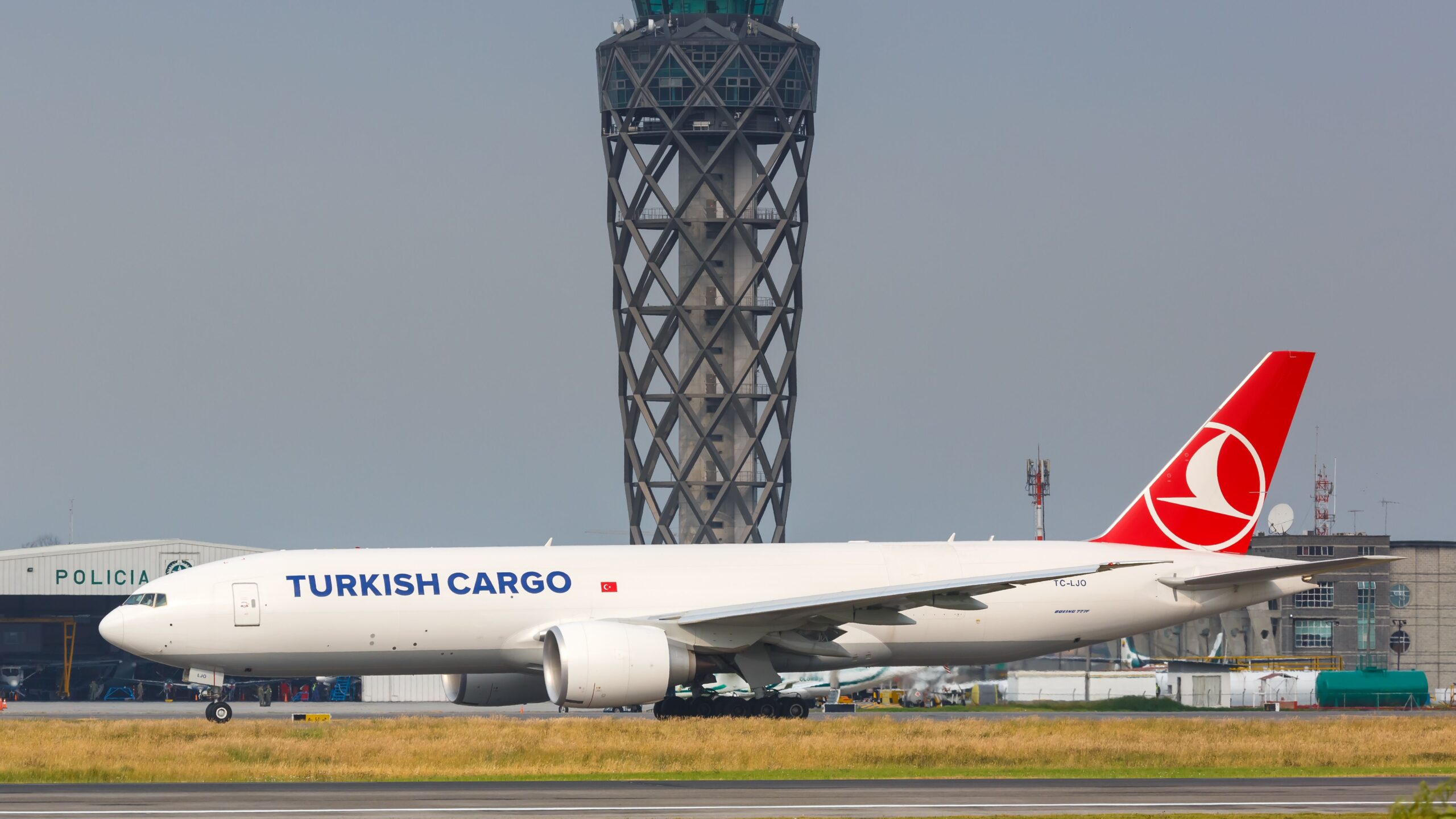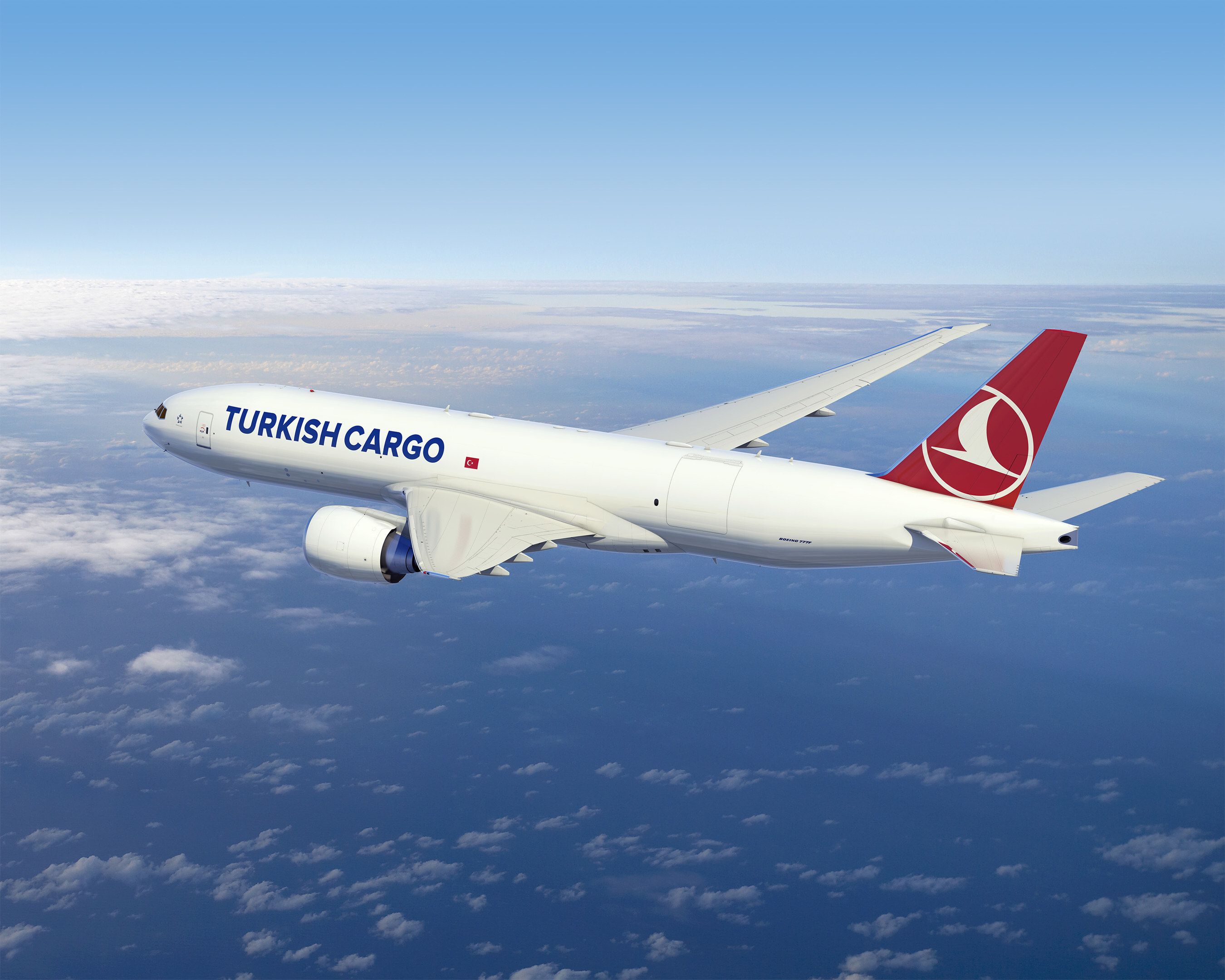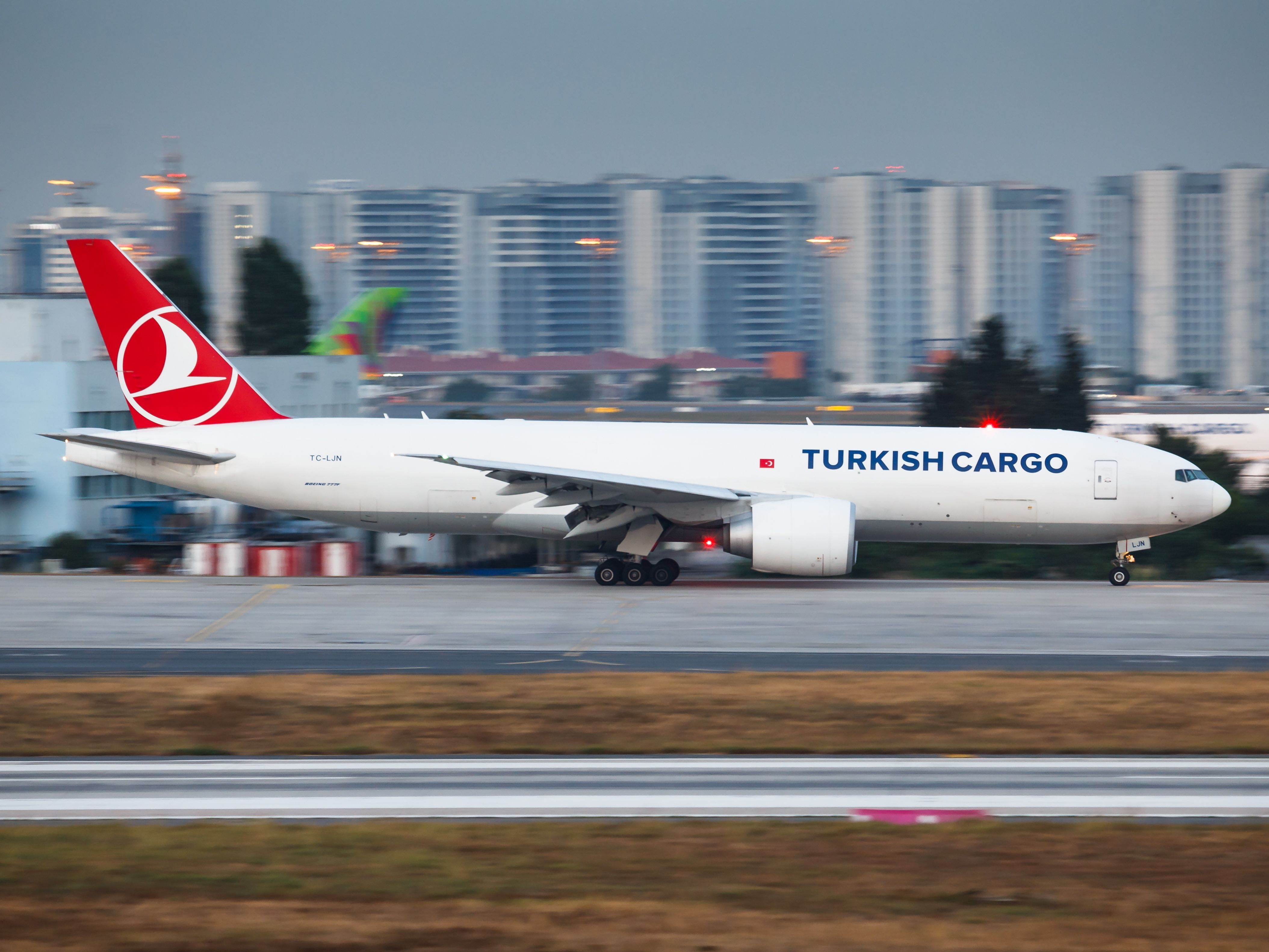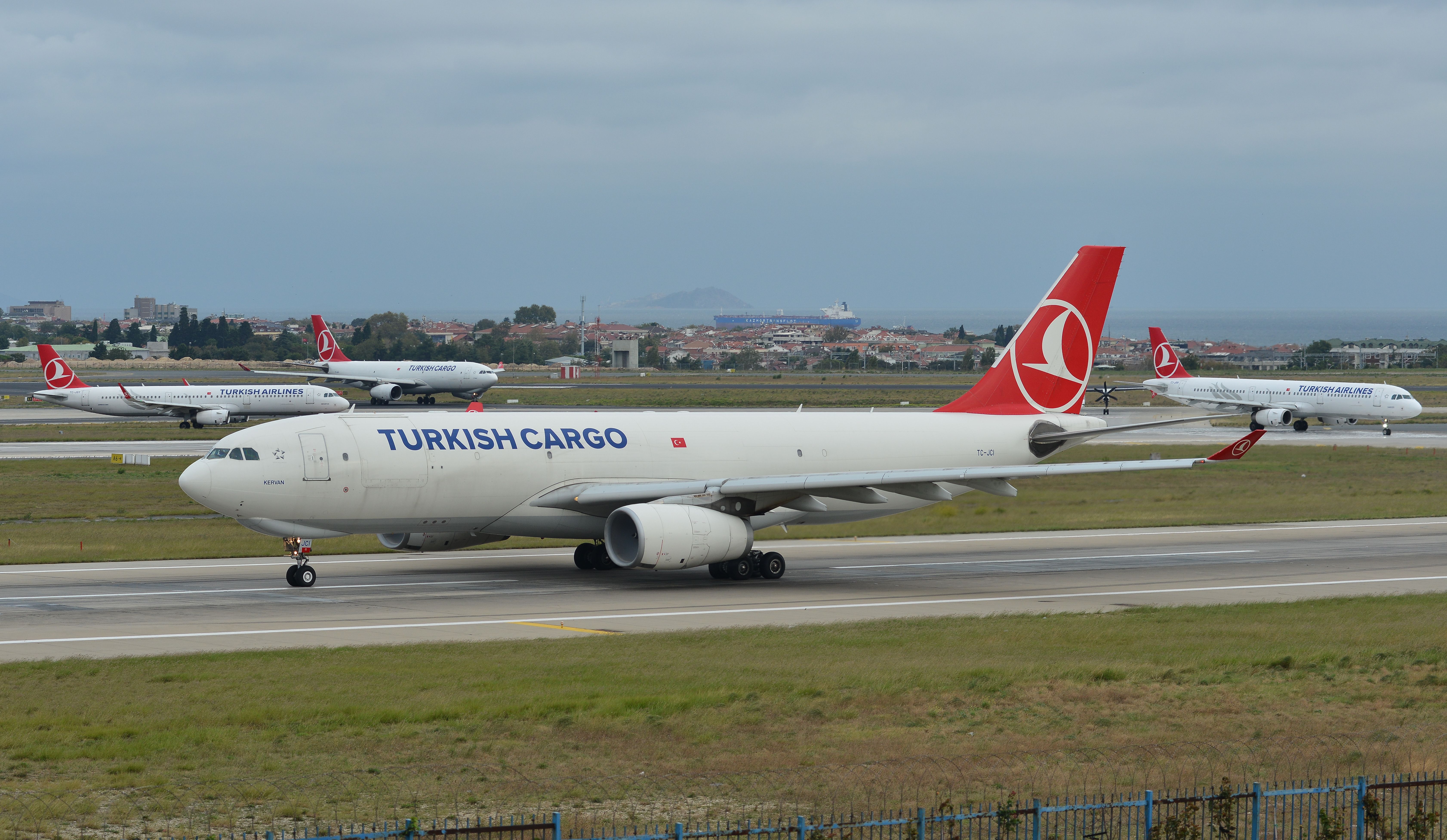Summary
- Turkish Airlines has ordered four more Boeing 777F aircraft, which will take its total 777F fleet to 12.
- Despite a recent downturn in the cargo market, Turkish Cargo has experienced significant growth in recent months.
- Still, Boeing had delivered zero 777F aircraft in Q1 2024, according to the manufacturer’s quarterly report.
Turkish Airlines has ordered four additional Boeing 777F aircraft, which are based on the 777-200LR, to bolster its fleet of freighters of the type to 12 while also providing Boeing with additional cash on the 777 program. Furthermore, despite a general slump in the cargo market, Turkish Cargo has been growing its operations in the past months.
Growing demand for cargo services
According to Ali Türk, the chief cargo officer (CCO) of Turkish Airlines, the newest order represented the airline’s commitment to meeting the ever-growing global demand for air freight services. As a result, the addition of the 777Fs will not only improve its operational capability but also serve as another step in its strategic vision to become the number one air cargo carrier in the world.
Photo: Boeing
Meanwhile, Boeing reiterated that the order for four 777Fs will help the airline meet the growing demand for air cargo services, which was driven by the surge in e-commerce and the need for efficient and reliable freight transportation across the globe. The new cargo aircraft will enable Turkish Cargo to optimize its cargo operations, reduce costs, and deliver goods on time. According to Turkish Airlines’ latest traffic figures in May, its cargo loads increased by 28.8% ysear-on-year (YoY) during the month. During the five-month period from January to May, the amount of cargo it had carried grew by 33.7%.
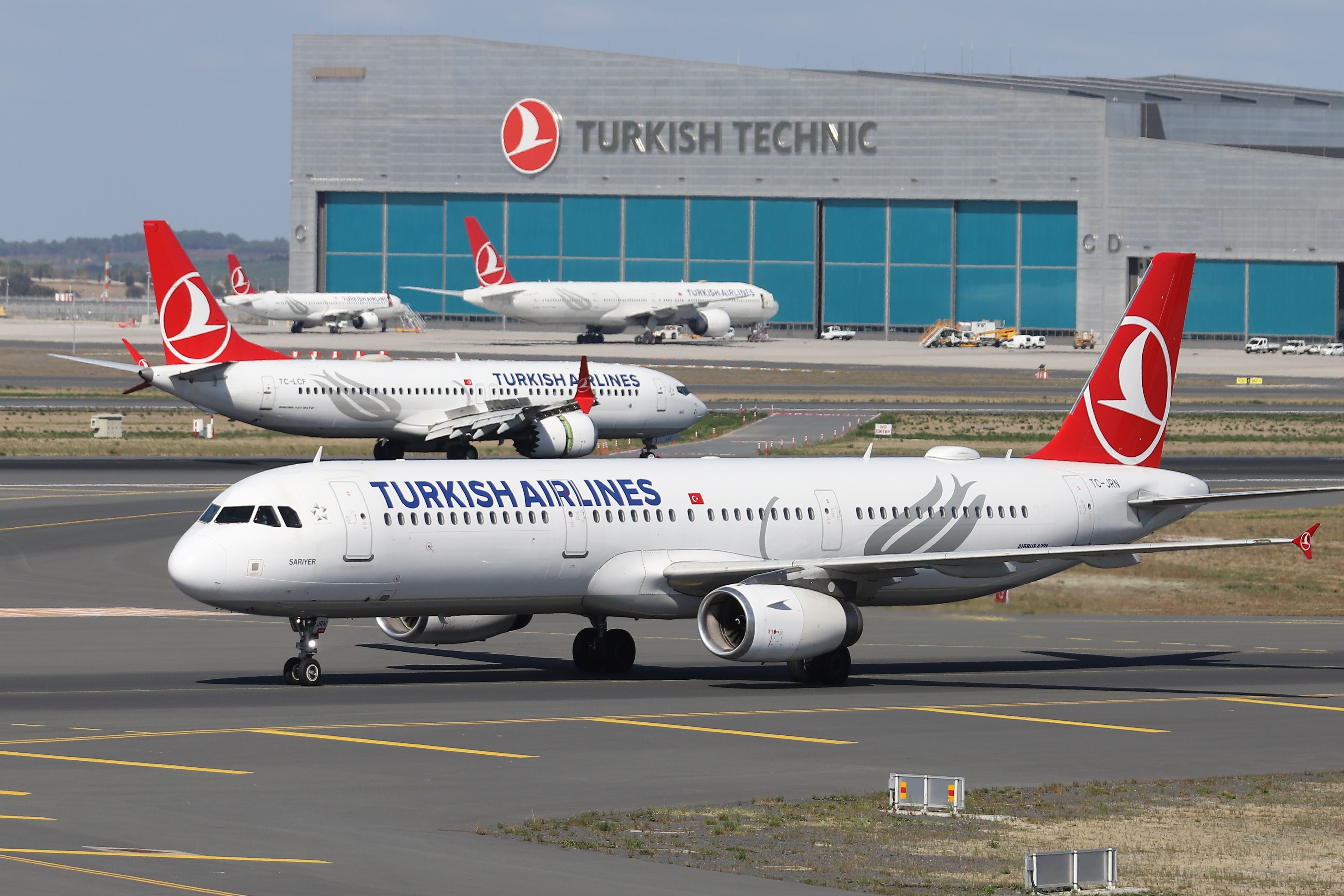
Related
Turkish Airlines Sees 80% Full Planes On International Flights
By 2033, Turkish Airlines aims to carry 170 million annual passengers with a fleet of over 800 aircraft.
Unfilled orders for the 777F
Paul Righi, the vice president of Boeing Commercial Sales for Eurasia, emphasized that Boeing was proud to continue its partnership with Turkish Airlines, supporting its expansion of cargo operations with the four 777Fs. The Boeing executive praised the 777F’s payload capacity, range, and flexibility, that will enable Turkish Cargo to deliver exceptional customer service.
Photo: MBekir | Shutterstock
According to Boeing’s orders and deliveries filings, as of May 31, Boeing had 53 unfilled gross orders for the 777F. However, this included six orders from Volga-Dnepr, with the airline and its directors being sanctioned by the European Commission (EC) for its participation of the Russian invasion of Ukraine on June 24.
“Since the beginning of Russia’s war of aggression against Ukraine, the Volga Dnepr Group has been playing a crucial role in servicing Russia’s military-industrial complex and providing air transportation services for Russian military purposes.”
No Russian airline has been able to take delivery of new aircraft from Airbus or Boeing since the country illegally invaded Ukraine in February 2022, which has also resulted in local carriers struggling with aircraft maintenance due to the sanctions imposed on the country’s aerospace sector.
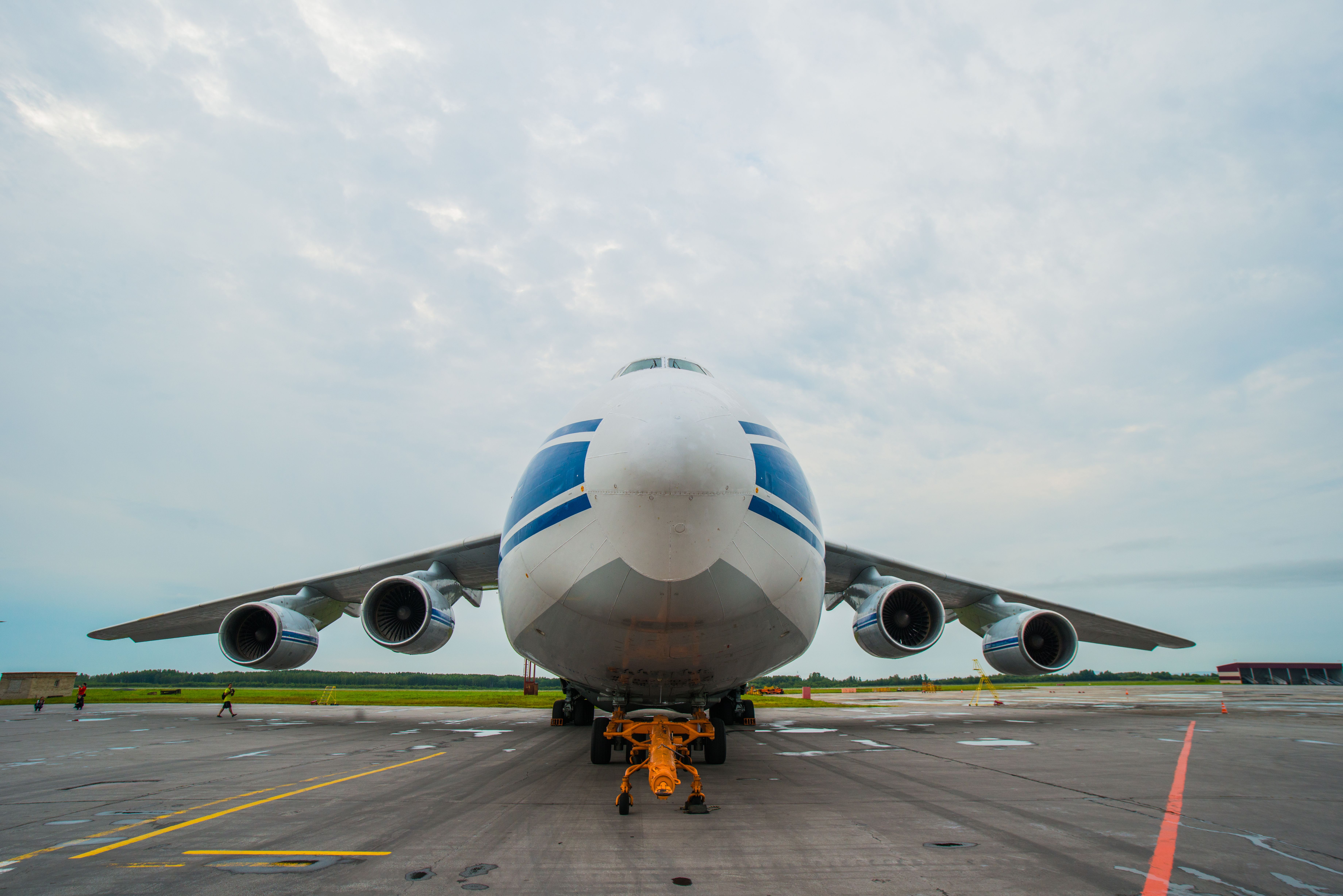
Related
Seized Russian Antonov An-124 Has Been At Toronto Pearson So Long It’s On Google Maps
Since the seizure of the freighter, there has been no movement.
Nevertheless, Maersk Aviation Holding, a subsidiary of the shipping company Maersk, Air China Cargo, Atlas Air, China Airlines, DHL, Emirates, Ethiopian Airlines, FedEx, Lufthansa, Silk Way West Airlines, and Western Global Airlines still hold orders for the 777F.
Ch-aviation data showed that Boeing delivered its latest 777F to China Airlines. The Taiwan-based airline took delivery of the aircraft on June 25, with the 777F, registered as B-18780, beginning flights on behalf of China Airlines on June 29.
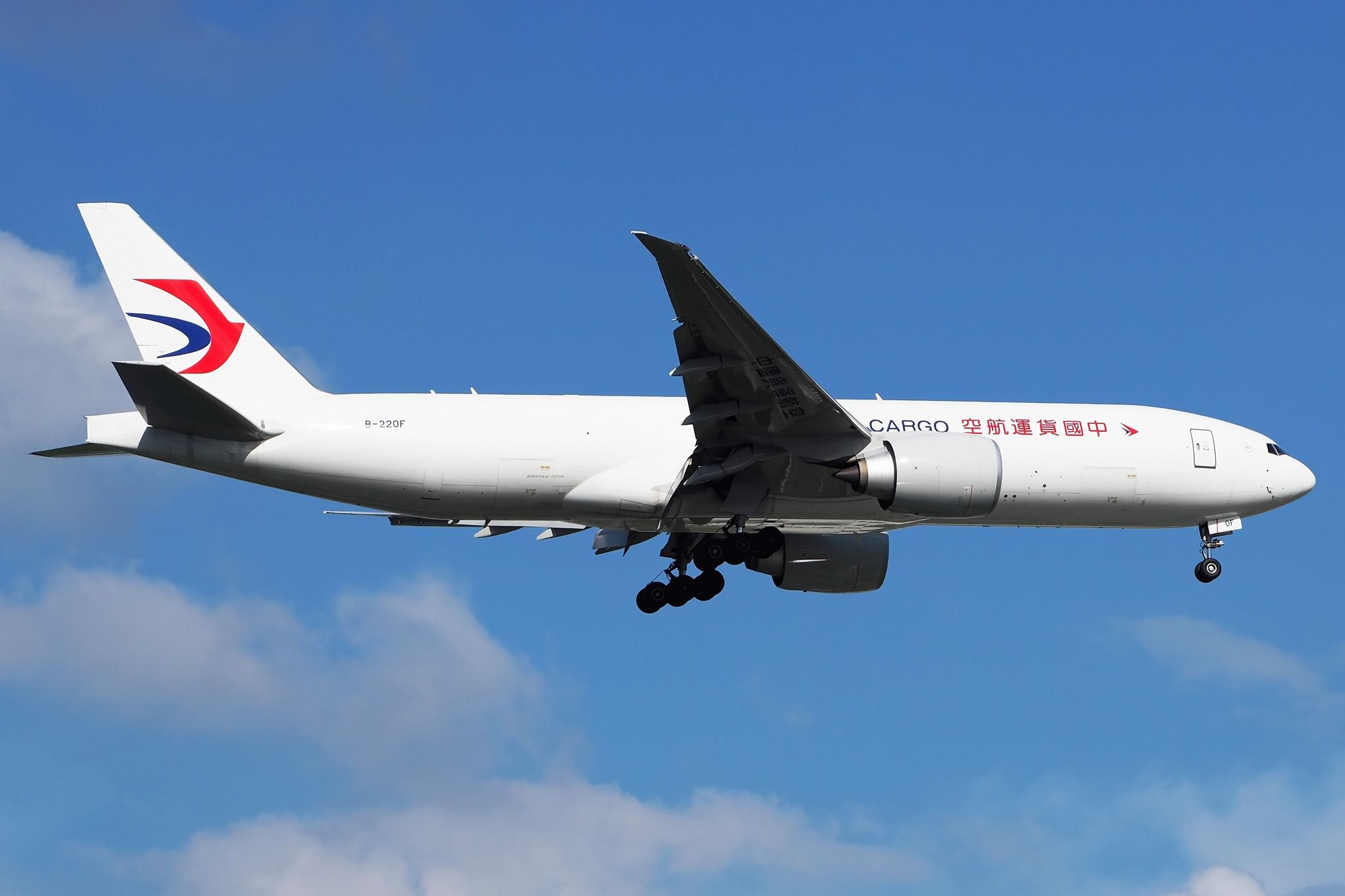
Related
China Cargo Airlines Boeing 777 Returns To New York After Bird Strike Disables Engine
A China Cargo Airlines Boeing 777F was forced to turn back to JFK following a bird strike, which disabled its right-hand engine.
Building four per month
However, Boeing’s Q1 2024 US Securities and Exchange Commission (SEC) filing showed that it delivered zero 777 aircraft during the quarter despite saying that it was producing four 777/777X per month. The company does not expect to deliver the first 777-8F until 2027, which means that there are a couple of years left until cargo airlines begin receiving their newest-generation freighters.
Photo: Phuong D. Nguyen | Shutterstock
As a result, Turkish Airlines’ additional 777F orders showed that the airline wants that freighter capacity sooner, considering that it has been growing its cargo operations despite the general downturn within that sector. The airline’s Q1 presentation stated that Turkish Cargo was the third-largest cargo airline in the world in terms of freight ton kilometers (FTK), with 15.7% of Turkish Airlines’ revenues coming from its cargo division. Its Q1 cargo revenues were $750 million, an increase of 27% YoY.
In December 2023, Turkish Airlines ordered 220 Airbus aircraft, split between 150 A321neo and 70 A350s, including 50 A350-900, 15 A350-1000, and five A350F aircraft, which took the order book of the Airbus widebody freighter to 50 units. In February, Taiwan-based STARLUX Airlines ordered another five A350Fs from the European manufacturer.
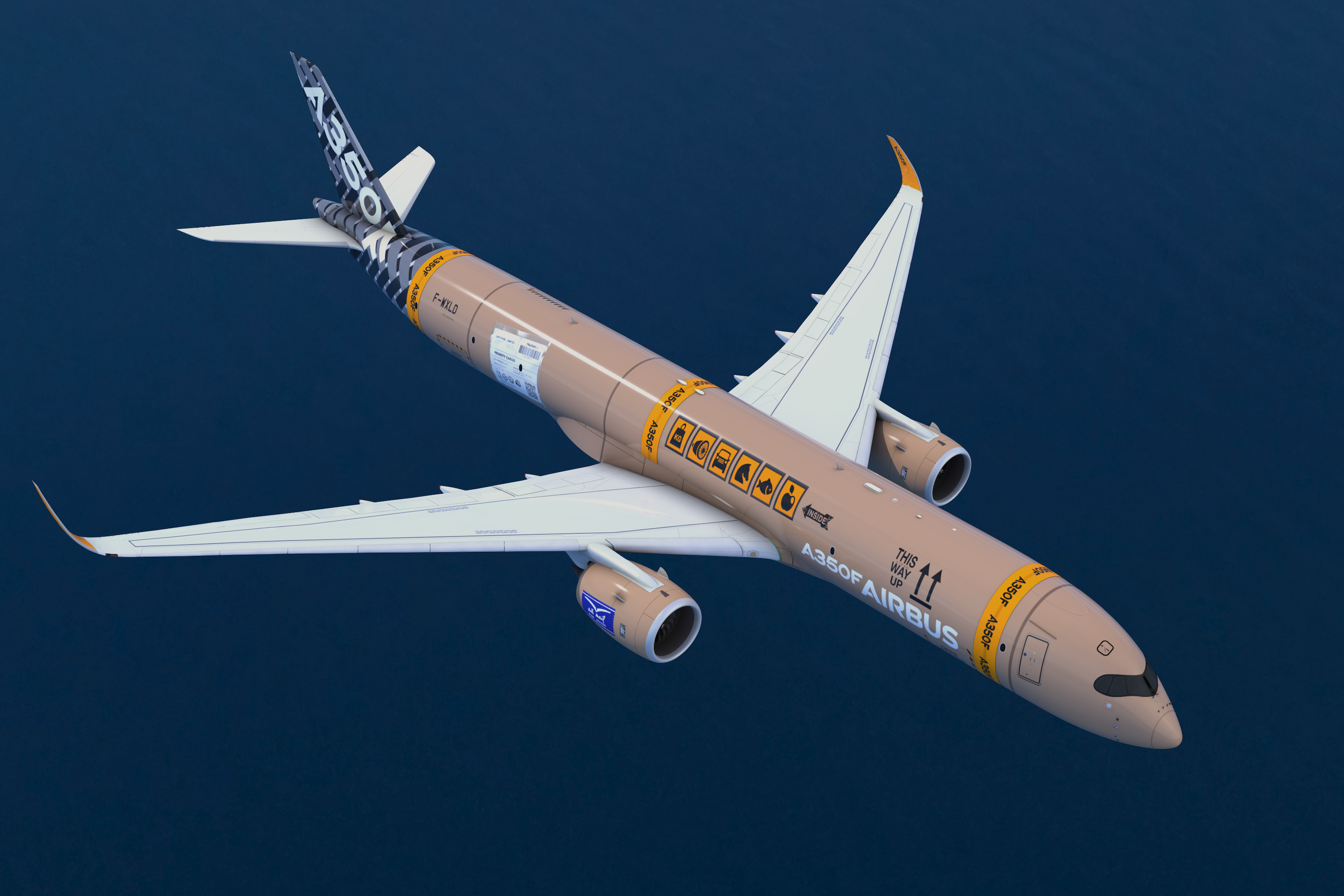
Related
50 Airframes Ordered: The State Of The Airbus A350F In 2024
The next-generation freighter is slightly behind on orders compared to the 777-8F.

